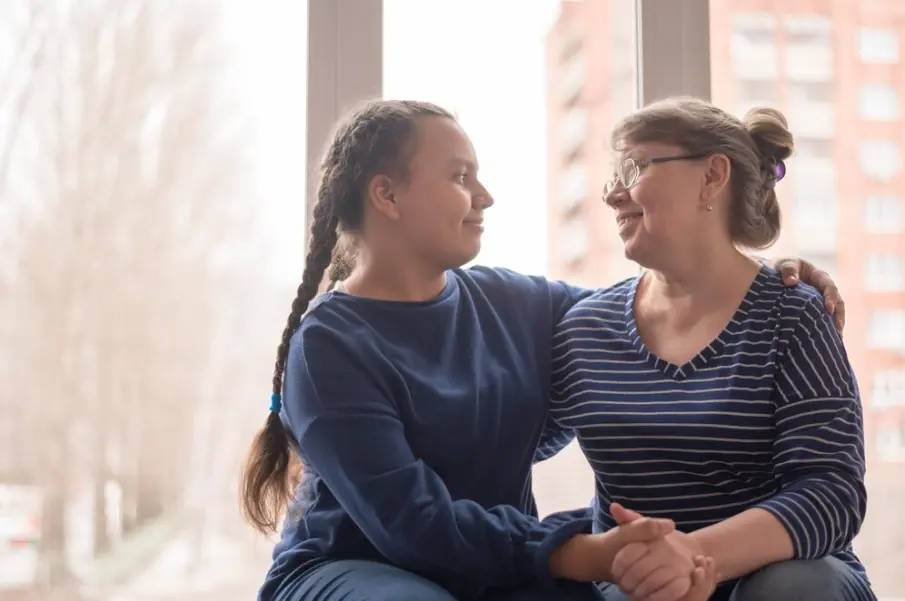Live-In Care and Legacy: Supporting Life’s Final Chapters with Dignity

As people grow older, the things that matter most tend to change. Comfort, companionship, and dignity often take centre stage. For many, the final stage of life is not only about medical care, but about preserving a sense of self, honouring personal wishes, and reflecting on the experiences that make up a person’s legacy. Live-in care plays a meaningful role in supporting these priorities.
Rather than moving into a care home or hospital, more families are turning to live-in care so their loved ones can remain in familiar surroundings, supported by a consistent, compassionate carer. It is a type of care that allows for both practical support and emotional presence—especially important during life’s later chapters.
The Importance of Staying at Home
The desire to remain at home, particularly towards the end of life, is common. Familiar rooms, treasured possessions, and even the view from a favourite chair can bring comfort that no clinical setting can offer. Live-in care allows individuals to receive help with their daily needs while staying in the place they know best.
Unlike short visits from domiciliary carers or hospital care, live-in carers provide continuous support. This includes help with washing, dressing, cooking, and medication, but also extends to companionship and emotional presence. The carer becomes a steady, reassuring figure, supporting not only the individual but often their family too.
Preserving Dignity Through Personalised Support
End-of-life care is not only about symptom management—it’s about treating someone with respect. Carers who live in are uniquely placed to offer support that adapts to changing needs, while always treating the person with dignity.
By being present throughout the day and night, live-in carers can notice subtle changes that might signal discomfort or distress. This close attention means adjustments can be made quickly, without the need to move someone into unfamiliar surroundings.
And because care happens in the home, routines can be followed in a way that suits the person—not the schedule of a care facility. Favourite meals, specific ways of doing things, and quiet times of reflection are all preserved.
Supporting Emotional Wellbeing
Legacy is about more than what is left behind—it’s about meaning and memory in the present. As people reach the later stages of life, they often want to talk about their past, reconnect with loved ones, and make peace with unfinished matters. Having someone there who listens, who respects their stories, and who gives them space to speak can be a powerful comfort.
Live-in carers often support individuals in making memory boxes, recording family histories, or simply having thoughtful conversations. These are not tasks listed on a care plan, but they matter just as much.
The presence of a carer also offers comfort to family members. Knowing someone is there throughout the day brings peace of mind, especially if relatives live far away or cannot be present at all times.

Helping Families Through Difficult Times
For family carers, supporting a loved one at home can be emotionally and physically exhausting. Sleep is interrupted, routines fall apart, and decisions can become overwhelming. Live-in care provides the opportunity for families to step back from the demanding tasks and simply be family again.
They are still involved in care decisions, but they no longer carry the burden alone. Whether they need a full-time carer or respite during a particularly difficult period, live-in support provides relief.
This can make the time remaining more meaningful. Instead of focusing on tasks and timetables, relatives can spend quiet time together, share meals, or simply hold hands. Those moments are what remain in memory after a loved one is gone.
Opportunities for Carers: More Than a Job
Being a live-in carer in end-of-life support is a responsibility that requires more than training—it takes kindness, patience, and the ability to be present even in silence. However, it is also one of the most meaningful roles in care.
Those considering healthcare careers often find that live-in care offers the chance to build lasting, personal connections. It also means being part of someone’s life at a deeply human level.
There are many online training resources that help carers understand their responsibilities, including how to support someone through the final stages of life in a way that respects both medical needs and emotional wellbeing.
A Quiet, Steady Presence
Companies such as Agincare support this kind of work by pairing families with carers who understand the importance of dignity and consistency. Their live-in carers are trained not just in practical skills, but in communication and compassion.
But what makes a difference is not only the training—it’s the fact that a carer is there, day and night, as a calm, steady presence. This is where live-in care stands out. It is not a rotating staff or shift-based service. It is continuity, humanity, and reassurance.

Final Thoughts
According to health care experts who write for us on health and elder care, the final stage of life deserves the same attention, respect, and thoughtfulness as any other. Live-in care allows individuals to spend their final days in comfort, surrounded by familiarity, supported by people who care.
It is not just about the end. It’s about honouring a person’s whole life—helping them live as fully as possible, for as long as possible, in the place they call home.
More to Read:
Previous Posts:











